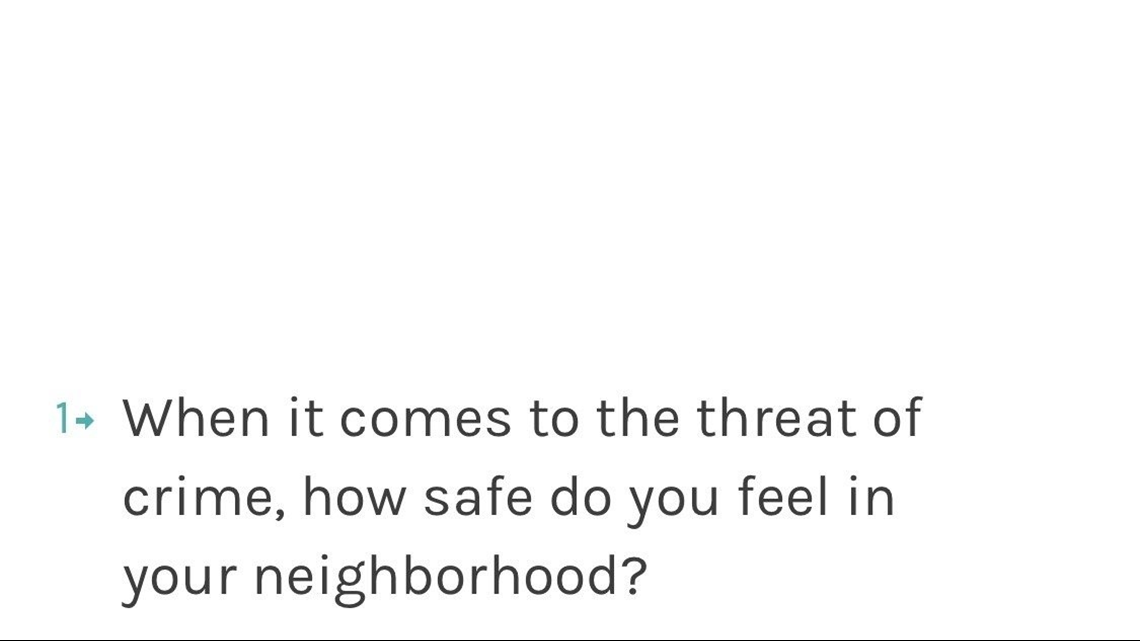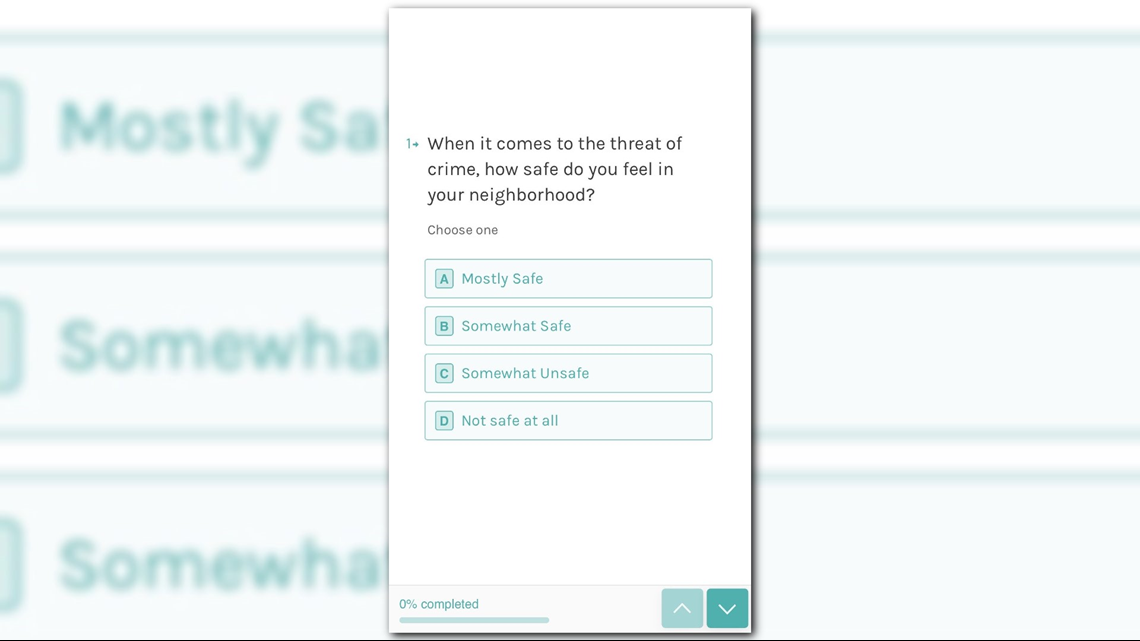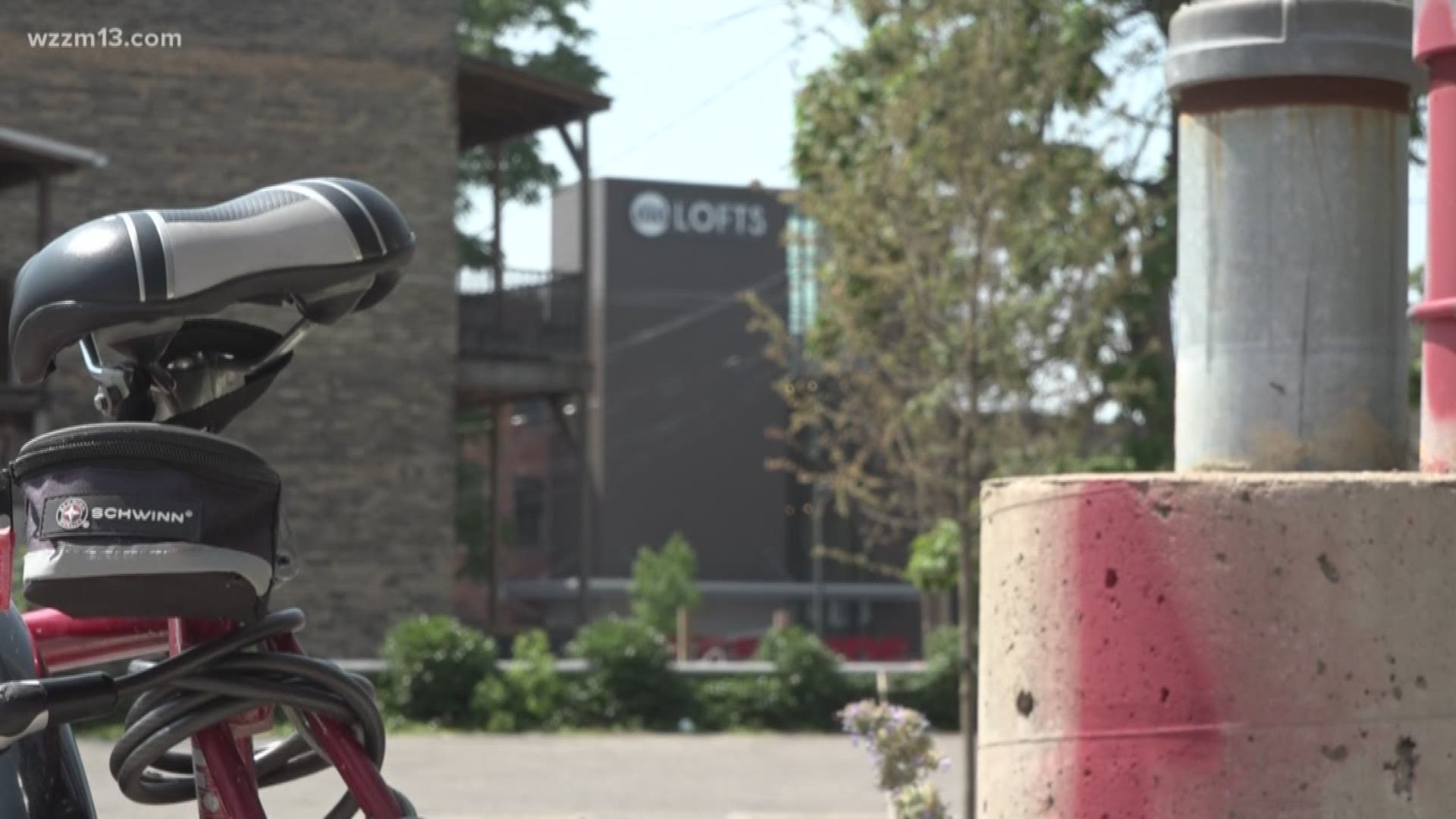GRAND RAPIDS, Mich. - The Grand Rapids Police Department is one of the first four departments in the entire country to invest in a way of measuring the public's trust.
"We're not going to arrest our way to better relationships," said Grand Rapids Police Chief David Rahinsky.
The city approved a $150,000 investment out of the police department's more than $50 million budget back in April. As Rahinsky put it, this investment cost is about the same cost of a single officer, except to show them how all 300 officers are doing.
The idea for the survey started with a question from within the New York City Police Department: What if we could measure things like trust or whether or not people feel safe in the same way we measure crime?


Out of those questions came Elucd (pronounced e-loo-cid), the brain child of a technical team out of Brooklyn and the NYPD.
"We developed this alongside NYPD," said Elucd's CEO Michael Simon. "They really set the vision and we provided the technical skill and implementation."
Simon, who previously did similar work targeting voters during former President Obama's 2008 campaign, said the key is keeping the survey 'random' in a very precise way with a 'credit score' for each neighborhood, as their website describes the program.
"To preserve the randomness, actually, the only way to take it is to be invited to take it," Simon explained. "It's not intrusive, you can opt in. So, folks will be on Facebook or Instagram, and they will see it in the space where you’d typically see an advertisement."
The data is collected monthly, and a couple thousand people have already taken the survey in Grand Rapids. The information is gathered in a way that will allow the department to see the levels of each neighborhood's trust and confidence in the department.
"Every month, we attempt to build a sample that looks like Grand Rapids," Simon said of the brief survey that's provided in English and Spanish.


GRPD will receive their first report in August. Rahinsky said they are anxious to hear the results, but he expects they will be positive overall.
“I'm hoping that the initial report will show what I believe to be true, which is that overall the Grand Rapids Police Department does enjoy support across the community," he said. "I think often times we hear from the outliers more than we hear from the silent majority."
That being said, Rahinsky said he knows the data will also reveal areas that need work.
"I think we’ll also recognize there is headway to be made in certain communities and certain neighborhoods," Rahinsky said. "This will give us the ability to identify those neighborhoods, particularly, and make sure that we are doing the right things."
Rahinsky said they will use the data to determine where more outreach efforts are required in Grand Rapids' five different service areas. "Where we need to get out of the cars, and we need to engage."
Rahinsky said he'd like to deploy more bike patrol cops and host community popups events like "Chillin' with the Chief" or police car karaoke to get connected in zip codes where the trust is lacking.
"Just opportunities for people to engage. It's all about contact—the unknown I think tends to be intimidating, and in some respects, when unknown law enforcement can be scary," Rahinsky admitted. "It’s the nature of the uniform, the nature of the firearm and sometimes the punitive sanctions that come from a law enforcement capacity."
The chief explained the survey results will not be used as a way to discipline officers, he sees it solely as a positive tool to build trust and relationships. He said Elucd is very much another attempt at working on GRPD's image in the community, especially as they work toward things like CALEA accreditation, the law enforcement industry's gold standard. The work on GRPD's image also comes after several incidents that received national attention.
“For a long time now, for decades, law enforcement has been able to look at crime statistics and crime data to deploy their resources in response to where they most needed to be," Rahinsky explained.
But, Elucd, which Rahinsky called a "game changer," will provide data that has never been available to police departments—in a time when it's crucial.
"I think the way law enforcement is judged has changed. Whereas clearance rates and crime rates was the standard for generations, people are concerned about engagement and trust now," Rahinsky said. "Elucd gives us the opportunity to look by neighborhood how we are doing."
Simon, an Oakland County native, said he was excited when a city of Grand Rapids' size, much smaller than their other partners, reached out.
“It's one thing to work with the L.A.s, New Yorks and Chicagos of the world, which of course are really big and influential," Simon said. "But most people live in cities like Grand Rapids, and I think the future of how cities evolve and get better and serve the population is they become more sophisticated in how they operate."
As far as the cost, Simon said the price is pretty optimal, especially for smaller cities, as the price is based on population size.
"If you're running for governor or even mayor and you hired a pollster to do a survey for the city of Grand Rapids, that would cost $30-60,000 to do one survey, once," Simon said. "What the city is getting here for a fraction of that is data every single month that is constantly updated, gathered every single day and gets at a much, much finer grain than a traditional survey."
Simon said Elucd does not collect any personal data from those who take the survey; it's kept completely anonymous. It's taken Grand Rapids residents an average of one minute and 20 seconds to complete the questions, which are followed by an explanation of how the information will be used.
The department will not be releasing the results to the public until a couple months in, after they are able to draw some conclusions and act on them, Rahinsky said.
It's too soon to know if Elucd will be successful in Grand Rapids, but at the very least, it will provide an outlet for the "silent majority" who would like to be heard.
►Make it easy to keep up to date with more stories like this. Download the 13 ON YOUR SIDE app now.
Emma Nicolas is a multimedia journalist. Have a news tip or question for Emma? Get in touch by email enicolas@wzzm13.com, Facebook or Twitter.

